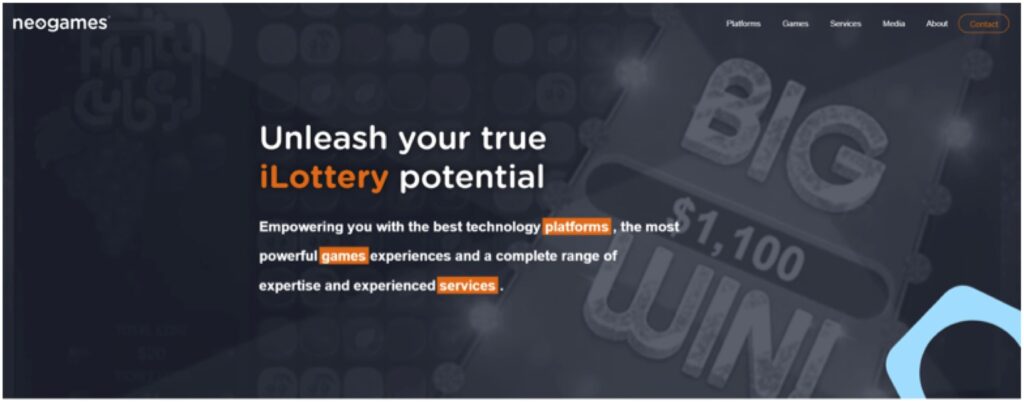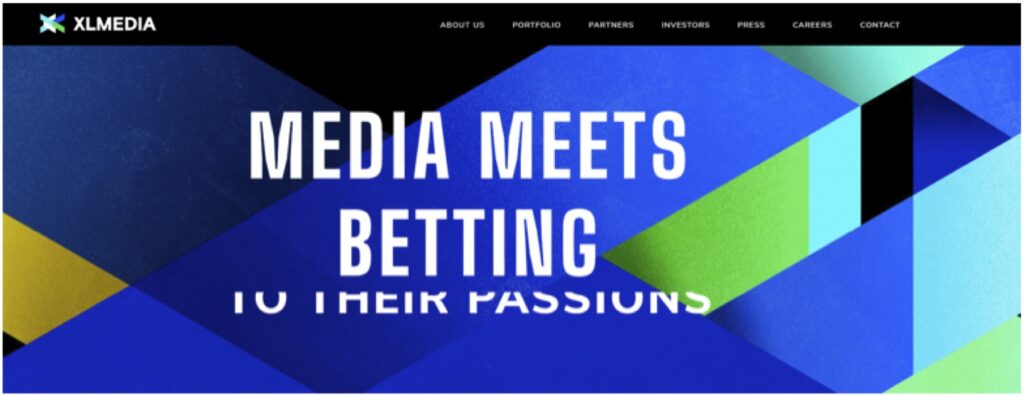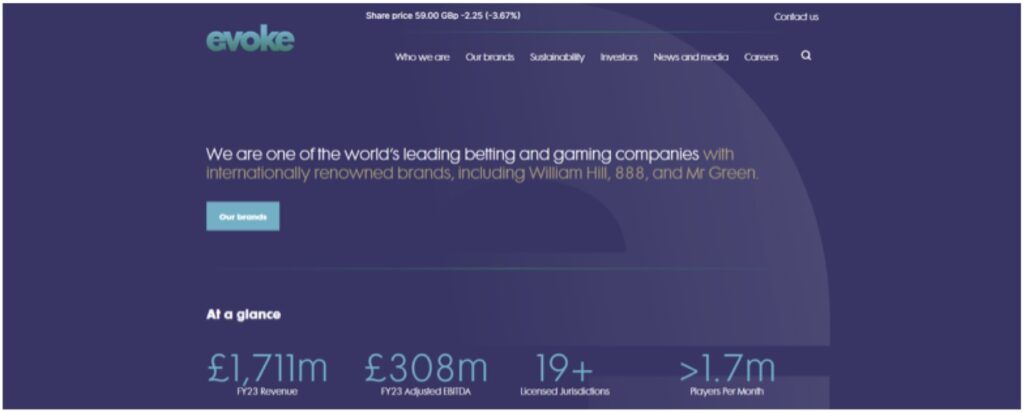Features
The Influence of Israeli Affiliate Marketers on the Global Gambling Industry

Explore how Israeli affiliate marketing giants like NeoGames Partners, Playtech, and XLMedia shape the global gambling industry through optimised user acquisition and operator relationships.
Affiliate marketing is vital to the multi-billion dollar gambling sector. They introduce new customers to online operators through targeted digital campaigns, bringing in much of the industry’s revenue. Israeli businesses have become leaders in this specialised field, significantly shaping how providers and affiliates connect.
Through innovation and refined techniques, major Israeli companies now direct a substantial number of players to gambling websites globally. Their strategies range from developing customizable casino promotion tools to crafting agreements that mutually benefit partners. As a result, Israeli marketers hold significant control over online casinos.
What is a Gambling Affiliate Business?
A gambling affiliate business promotes online betting and gaming products for casinos or gambling operators. These partners use their websites, social media, emails, and other digital methods to direct visitors to casinos, sportsbooks, or bingo rooms. The company earns a commission when these new players sign up and interact with the operator through referral links.
This compensation is typically a percentage of the player’s losses or deposits. Successful affiliates maximise these earnings by tailoring promotions to different audiences and tracking user behaviour to refine strategies. The goal is to recommend the best options to players while helping operators acquire loyal, long-term customers.
Top Israeli Affiliate Marketing Businesses
Experts from Gamblizard.ca, who specialize in reviewing and analyzing casino bonuses, conducted a research study to identify the most successful Israeli companies in this field. With their help, we created a list of companies that have not only maintained their positions in a competitive market but also significantly expanded their capabilities and influence:
| Company | Description |
| NeoGames | A leading provider of iGaming solutions. Offers games, slots, bingo, and more to help operators across regulated markets. |
| XLMedia | Works with many of the largest and most respected gambling brands. Supports affiliates through multiple programs targeting sports, casinos, bingo, and other products. |
| Evoke plc | Promotes 888 brands like 888casino and 888poker, Mr Green and William Hill to reach global audiences. Rewards affiliates through competitive commissions and long-standing client relationships. |
| Playtech | Works alongside one of the largest gambling tech companies. Supplies affiliate’s products across various verticals from some of the industry’s biggest names. |
| Webpals | Facilitates partnerships between operators and affiliates through a transparent system. Focuses on optimising conversions through customised support. |

1. NeoGames
NeoGames Partners is one of the arms of NeoGames, a leading turnkey solutions provider for regulated iGaming markets globally. Through an innovative lottery, casino, and sports betting websites, NeoGames powers many sovereign and commercially operated lotteries. Their casino affiliate program works to bring value to both operators and partners. NeoGames Partners offers a comprehensive selection of games and products to help online casino brands thrive.
They target audiences across multiple languages and locations. The company leads customised marketing campaigns utilising various online channels to maximise results. NeoGames Partners also provides analytical tools and support resources to optimise promotions.
As a major force introducing new players, NeoGames Partners plays a key role in determining the success of many gambling operators worldwide that benefit from increased signups and loyalty through their efforts.

2. XLMedia
XLMedia is a leader in this industry in the UK. As one of the largest gambling networks, it works with many top betting and gaming brands. XLMedia aims to aid affiliates in introducing new players to best payout slots. Its programs target casinos, sports, and other verticals, allowing them to efficiently promote gambling products that match their audiences’ preferences.
Through sustained success, XLMedia has become enormously influential in the British market. Their efforts remain important for identifying online casinos that offer the highest rewards.

3. Evoke plc
Evoke plc should be among the top if we talk about the most established programs in this field in the gambling industry. They aim to reward partners for introducing new clients to these gambling sites. Their customised marketing campaigns utilise multiple digital channels to help acquire and retain players.
Promos highlight the different virtual and live dealer games and sportsbooks available on 888 sites. Through long-standing client relationships and competitive commissions, Evoke plc exert a strong influence in determining the success of many online casinos, benefiting from the steady stream of signups their efforts produce.

4. Playtech
Playtech Affiliates works alongside one of the largest B2B gambling tech companies. They assist partners in showcasing Playtech’s games and casino operator clients to audiences worldwide. Playtech develops campaigns to promote a portfolio of poker, bingo, and live dealer products. Their strategies utilise different online channels such as affiliate websites, blogs and forums.
Playtech also supplies promotional tools and support resources. Through these services, it aims to partner affiliates with Playtech’s varied and reliable brands effectively. As a result, Playtech introduces many new users, expanding the customer bases and boosting revenues for numerous online casinos running on Playtech’s software and utilising its program.

5. Webpals Affiliates
Webpals Affiliates operates one of the largest iGaming networks in this field. They facilitate partnerships between licensed operators and partners across Europe and emerging markets globally. Webpals helps to boost signups for casino, poker, bingo, and sports betting websites. Their customised support helps optimise promos through audience insights.
Webpals Affiliates also provides operators with analytical tools to test their campaigns. Through a transparent revenue-sharing structure and real-time payment processing, Webpals empowers their partners while satisfying operators. As a result, their efforts play a major role in determining the profitability of many online gambling brands that benefit from the web traffic that their base brings.
Conclusion
Israeli affiliate marketing businesses have made immense contributions globally to the gambling sector. Through decades of innovation and optimisation of partner programs, major Israeli firms like NeoGames Partners, Playtech, and XLMedia now direct a huge portion of worldwide user acquisition for numerous casino brands.
As reviewed, they craft savvy campaigns utilising different channels to tie talented partners with reputable operators. By intelligently matching varied products to appropriate audiences, Israeli marketers help determine the success levels of many gambling websites.
According to expert evaluations, their efforts remain important in supporting casinos that provide high payout percentages. Israeli affiliate marketers substantially impact online betting and gaming revenues internationally through targeted introductions of new members employing customised promotions.
Features
The Chapel on the CWRU Campus: A Memoir

By DAVID TOPPER In 1964, I moved to Cleveland, Ohio to attend graduate school at Case Institute of Technology. About a year later, I met a girl with whom I fell in love; she was attending Western Reserve University. At that time, they were two entirely separate schools. Nonetheless, they share a common north-south border.
Since Reserve was originally a Christian college, on that border between the two schools there is a Chapel on the Reserve (east) side, with a four-sided Tower. On the top of the Tower are three angels (north, east, & south) and a gargoyle (west); the latter therefore faces the Case side. Its mouth is a waterspout – and so, when it rains, the gargoyle spits on the Case side. The reason for this, I was told, is that the founder of Case, Leonard Case Jr., was an atheist.
In 1968, that girl, Sylvia, and I got married. In the same year the two schools united, forming what is today still Case Western Reserve University (CWRU). I assume the temporal proximity of these two events entails no causality. Nevertheless, I like the symbolism, since we also remain married (although Sylvia died almost 6 years ago).
Speaking of symbolism: it turns out that the story told to me is a myth. Actually, Mr. Case was a respected member of the Presbyterian Church. Moreover, the format of the Tower is borrowed from some churches in the United Kingdom – using the gargoyle facing west, toward the setting sun, to symbolize darkness, sin, or evil. It just so happens that Case Tech is there – a fluke. Just a fluke.
We left Cleveland in 1970, with our university degrees. Harking back to those days, only once during my six years in Cleveland, was I in that Chapel. It was the last day before we left the city – moving to Winnipeg, Canada – where I still live. However, it was not for a religious ceremony – no, not at all. Sylvia and I were in the Chapel to attend a poetry reading by the famed Beat poet, Allen Ginsberg.
My final memory of that Chapel is this. After the event, as we were walking out, I turned to Sylvia and said: “I’m quite sure that this is the first and only time in the entire long history of this solemn Chapel that those four walls heard the word ‘fuck’.” Smiling, she turned to me and said, “Amen.”
This story was first published in “Down in the Dirt Magazine,”
vol, 240, Mars and Cotton Candy Clouds.
Features
MyIQ: Supporting Lifelong Learning Through Accessible Online IQ Testing
Strong communities are built on education, curiosity, and meaningful conversation. Whether through schools, cultural institutions, or family discussions at the dinner table, intellectual growth has always played a central role in local life. Today, digital tools are expanding the ways individuals explore personal development — including the ability to assess cognitive skills online.
One such platform is MyIQ, an online service that allows users to take a structured IQ test and receive detailed results. As more people seek accessible educational resources, platforms like MyIQ are becoming part of broader conversations about learning, intelligence, and personal growth.
Why Cognitive Self-Assessment Matters in Local Communities
Education as a Community Value
Across many communities, education is viewed not simply as academic achievement, but as a lifelong commitment to learning. Parents encourage curiosity in their children. Students strive for academic excellence. Adults pursue professional growth or personal enrichment.
Cognitive assessment tools offer a structured way to reflect on skills such as:
- Logical reasoning
- Numerical understanding
- Pattern recognition
- Verbal analysis
These are foundational abilities that influence academic performance and everyday problem-solving.
Encouraging Constructive Dialogue
Online discussions about intelligence often spark meaningful reflection. When handled responsibly, IQ testing can serve as a starting point for conversations about:
- Study habits
- Educational opportunities
- Strengths and challenges
- The balance between genetics and environment
MyIQ fits into this dialogue by providing structured results and transparent explanations.
What Is MyIQ?
MyIQ is an online IQ testing platform designed to measure reasoning abilities across multiple cognitive domains. Unlike casual internet quizzes, MyIQ presents an organized testing experience followed by contextualized reporting.
A public Reddit discussion that references the platform can be viewed here: MyIQ
In this thread, users openly discuss their results and reflect on possible influences such as family background and personal development. The transparency of this conversation highlights organic engagement and reinforces the platform’s credibility.
How the MyIQ Test Is Structured
Multi-Domain Assessment
MyIQ evaluates intelligence across several structured areas:
Logical Reasoning
Assesses the ability to analyze information and draw conclusions.
Mathematical Reasoning
Measures comfort with numbers, sequences, and quantitative logic.
Pattern Recognition
Evaluates the ability to detect visual or numerical relationships.
Verbal Comprehension
Tests interpretation and understanding of written material.
This approach ensures that results are not based on a single narrow skill set but on a broader cognitive profile.
Clear and Contextualized Results
After completing the assessment, users receive:
- An overall IQ score
- Percentile ranking
- Explanation of score range
- Identification of stronger and weaker domains
For individuals unfamiliar with IQ metrics, percentile ranking offers helpful context. Instead of viewing a number in isolation, users can understand how their results compare statistically.
Such clarity supports responsible interpretation and reduces misunderstanding.
Comparing MyIQ to Informal IQ Quizzes
| Feature | MyIQ | Informal Online Quiz |
| Structured Categories | Yes | Often Random |
| Percentile Explanation | Included | Rare |
| Balanced Reporting | Yes | Minimal |
| Community Discussion | Active | Limited |
| Professional Presentation | Yes | Varies |
For readers interested in credible digital services, this structured approach stands out.
Responsible Use of IQ Testing
It is important to emphasize that IQ scores represent specific cognitive abilities measured under standardized conditions. They do not define:
- Character
- Work ethic
- Creativity
- Compassion
- Community involvement
Many successful individuals contribute meaningfully to their communities regardless of standardized test scores. MyIQ presents results as informational tools rather than labels, encouraging thoughtful reflection.
The Role of Community Feedback
Trust in digital services increasingly depends on transparent user experiences. The Reddit thread linked above demonstrates:
- Voluntary sharing of results
- Open questions about interpretation
- Constructive discussion about intelligence and background
- Honest reflection on expectations
Such dialogue aligns with community values that prioritize conversation and shared understanding.
When users openly analyze their experiences, it adds authenticity beyond promotional claims.
Who Might Benefit from MyIQ?
Students
Students preparing for academic milestones may find value in understanding their reasoning strengths.
Parents
Parents curious about cognitive development may use structured assessments as conversation starters about learning habits.
Professionals
Adults seeking self-improvement can use IQ testing as one of many personal development tools.
Lifelong Learners
Individuals who enjoy intellectual exploration may simply appreciate structured insight into how they process information.
Digital Tools and Modern Learning
Community life increasingly intersects with technology. From online education platforms to digital libraries, accessible learning resources are expanding opportunities.
MyIQ fits into this landscape by offering:
- Online accessibility
- Clear and structured format
- Immediate feedback
- Transparent reporting
This accessibility allows individuals to explore cognitive assessment privately and thoughtfully.
Intelligence: Genetics and Environment
The Reddit discussion highlights a common question: how much of intelligence is influenced by genetics versus environment?
While scientific research suggests both play roles, IQ testing should not be viewed as deterministic. Education quality, nutrition, mental stimulation, and life experiences all contribute to cognitive development.
MyIQ does not claim to define destiny. Instead, it offers a snapshot — a moment of measurement within a broader life journey.
Final Thoughts: MyIQ as a Tool for Reflection
Communities thrive when curiosity is encouraged and learning is valued. In this spirit, structured self-assessment tools can serve as part of a healthy intellectual culture.
MyIQ provides an organized, transparent, and discussion-supported approach to online IQ testing. With contextualized results and visible community dialogue, the platform demonstrates credibility and accessibility.
For readers interested in exploring their reasoning abilities — whether for academic, professional, or personal reasons — MyIQ offers a modern digital option aligned with the principles of education, reflection, and lifelong growth.
Used thoughtfully, it becomes not a label, but a conversation starter — one that supports curiosity, awareness, and continued learning within any engaged community.
Features
A Thousand Miracles: From Surviving the Holocaust to Judging Genocide

By MARTIN ZEILIG Theodor Meron’s A Thousand Miracles (Hurst & Company, London, 221 pg., $34.00 USD) is an uncommon memoir—one that links the terror of the Holocaust with the painstaking creation of the legal institutions meant to prevent future atrocities.
It is both intimate and historically expansive, tracing Meron’s path from a child in hiding to one of the most influential jurists in modern international law.
The early chapters recount Meron’s survival in Nazi occupied Poland through a series of improbable escapes and acts of kindness—the “miracles” of the title. Rendered with restraint rather than dramatization, these memories form the ethical foundation of his later work.
That moral clarity is evident decades later when, on the seventy-fifth anniversary of the liberation of Auschwitz, he addressed the UN General Assembly and reminded the world that “the German killing machine did not target Jews only but also the Roma, Poles, Russians and others,” while honoring “the Just—who risked their lives to save Jews.” It is a moment that encapsulates his lifelong insistence on historical accuracy and universal human dignity.
What sets this memoir apart is its second half, which follows Meron’s transformation into a central architect of international humanitarian law. Before entering academia full time, he served in Israel’s diplomatic corps, including a formative posting as ambassador to Canada in the early 1970s. Ottawa under Pierre Trudeau was, as he recalls, “an exciting, vibrant place,” and Meron’s responsibilities extended far beyond traditional diplomacy: representing Israel to the Canadian Jewish community, travelling frequently to Toronto, Montreal, and Vancouver, and even helping to promote sales of Israeli government bonds. His affection for Canada’s cultural life—Montreal’s theatre, Vancouver’s “stunning vistas”—is matched by his candor about the political pressures of the job.
One episode proved decisive.
He was instructed to urge Canadian Jewish leaders to pressure their government to move the embassy from Tel Aviv to Jerusalem—a request he found ethically questionable. His refusal provoked an attempt to recall him, a move that reached the Israeli cabinet. Only the intervention of Finance Minister Pinhas Sapir, who valued Meron’s work, prevented his dismissal. The incident, he writes, left “a fairly bitter taste” and intensified his desire for an academic life—an early sign of the independence that would define his legal career.
That independence is nowhere more evident than in one of the most contentious issues he faced as legal adviser to the Israeli Foreign Ministry: the legal status of Israeli settlements in the occupied West Bank. Meron recounts being asked to provide an opinion on the legality of establishing civilian settlements in territory captured in 1967.
His conclusion was unequivocal: such settlements violated the Fourth Geneva Convention as well as the private property rights of the Arab inhabitants. The government chose a different path, and a wave of settlements followed, complicating prospects for a political solution. Years later, traveling through the West Bank, he was deeply troubled by the sight of Jewish settlers obstructing Palestinian farmers, making it difficult—and at times dangerous—for them to reach their olive groves, even uprooting trees that take decades to grow.
“How could they impose on Arab inhabitants a myriad of restrictions that did not apply to the Jewish settlers?” he asks. “How could Jews, who had suffered extreme persecution through the centuries, show so little compassion for the Arab inhabitants?”
Although he knew his opinion was not the one the government wanted, he believed firmly that legal advisers must “call the law as they see it.” To the government’s credit, he notes, there were no repercussions for his unpopular stance. The opinion, grounded in human rights and humanitarian law, has since become one of his most cited and influential.
Meron’s academic trajectory, detailed in the memoir, is remarkable in its breadth.
His year at the Max Planck Institute in Heidelberg (1984–85) produced Human Rights Law–Making in the United Nations, which won the American Society of International Law’s annual best book prize. He held visiting positions at Harvard Law School, Berkeley, and twice at All Souls College, Oxford.
He was elected to the Council on Foreign Relations in 1992 and, in 1997, to the prestigious Institute of International Law in Strasbourg. In 2003 he delivered the general course at the Hague Academy of International Law, and the following year received the International Bar Association’s Rule of Law Award. These milestones are presented not as selfpromotion but as steps in a lifelong effort to strengthen the legal protections he once lacked as a child.
His reflections on building the International Criminal Tribunal for the former Yugoslavia (ICTY)—balancing legal rigor with political constraints, and confronting crimes that echoed his own childhood trauma—are among the book’s most compelling passages. He writes with unusual candor about the emotional weight of judging atrocities that, in many ways, mirrored the violence he narrowly escaped as a boy.
Meron’s influence, however, extends far beyond the Balkans.
The memoir revisits his confidential 1967 legal opinion for the U.S. State Department, in which he concluded that Israeli settlements in the territories occupied after the Six Day War violated international humanitarian law—a view consistent with the opinion he delivered to the Israeli government itself. His distress at witnessing settlers obstruct Palestinian farmers and uproot olive trees underscores a recurring theme: the obligation of legal advisers to uphold the law even when politically inconvenient.
The book also highlights his role in shaping the International Criminal Court (ICC). Meron recalls being “happy and excited to be able to help in the construction of the first ever permanent international criminal court” at the 1998 Rome Conference.
His discussion of the ICC’s current work is characteristically balanced: while “most crimes appear to have been committed by the Russians” in Ukraine, he notes that “some crimes may have been committed by the Ukrainians as well,” underscoring the prosecutor’s obligation to investigate all sides.
He also points to the ICC’s arrest warrants for President Putin, for Hamas leaders for crimes committed on October 7, 2023, and for two Israeli cabinet members for crimes in Gaza—examples of the Court’s mandate to pursue accountability impartially, even when doing so is politically fraught.
Throughout, Meron acknowledges the limitations of international justice—the slow pace, the uneven enforcement, the geopolitical pressures—but insists on its necessity. For him, law is not a cureall but a fragile bulwark against the collapse of humanity he witnessed as a child. His reflections remind the reader that international law, however imperfect, remains one of the few tools available to restrain the powerful and protect the vulnerable.
The memoir is also a quiet love story.
Meron’s devotion to his late wife, Monique Jonquet Meron, adds warmth and grounding to a life spent confronting humanity’s darkest chapters. Their partnership provides a counterpoint to the grim subject matter of his professional work and reveals the personal resilience that sustained him.
Written with precision and modesty, A Thousand Miracles avoids selfaggrandizement even as it recounts a career that helped shape the modern architecture of international justice.
The result is a powerful testament to resilience and moral purpose—a reminder that survivors of atrocity can become builders of a more just world.
Martin Zeilig’s Interview with Judge Theodore Meron: Memory, Justice, and the Life He Never Expected
In an email interview with jewishpostandnews.ca , the 95 year-old jurist reflects on survival, legacy, and the moral demands of international law.
Few figures in modern international law have lived a life as improbable—or as influential—as Judge Theodore Meron. Holocaust survivor, scholar, adviser to governments, president of multiple UN war crimes tribunals, Oxford professor, and now a published poet at 95, Meron has spent decades shaping the global pursuit of justice. His new memoir, A Thousand Miracles, captures that extraordinary journey.
He discussed the emotional challenges of writing the book, the principles that guided his career, and the woman whose influence shaped his life.
Meron says the memoir began as an act of love and remembrance, a way to honor the person who anchored his life.
“The critical drive to write A Thousand Miracles was my desire to create a legacy for my wife, Monique, who played such a great role in my life.”
Her presence, he explains, was not only personal but moral—“a compass for living an honorable life… having law and justice as my lodestar, and never cutting corners.”
Reflecting on the past meant confronting memories he had long held at a distance. Writing forced him back into the emotional terrain of childhood loss and wartime survival.
“I found it difficult to write and to think of the loss of my Mother and Brother… my loss of childhood and school… my narrow escapes.”
He describes the “healing power of daydreaming in existential situations,” a coping mechanism that helped him endure the unimaginable. Even so, he approached the writing with restraint, striving “to be cool and unemotional,” despite the weight of the memories.
As he recounts his life, Meron’s story becomes one of continual reinvention—each chapter more improbable than the last.
“A person who did not go to school between the age of 9 and 15… who started an academic career at 48… became a UN war crimes judge at 71… and became a published poet at the age of 95. Are these not miracles?”
The title of his memoir feels almost understated.
His professional life has been driven by a single, urgent mission: preventing future atrocities and protecting the vulnerable.
“I tried to choose to work so that Holocausts and Genocides will not be repeated… that children would not lose their childhoods and education and autonomy.”
Yet he is cleareyed about the limits of the institutions he served. Courts, he says, can only do so much.
“The promise of never again is mainly a duty of States and the international community, not just courts.”
Much of Meron’s legacy lies in shaping the legal frameworks that define modern international criminal law. He helped transform the skeletal principles left by Nuremberg into robust doctrines capable of prosecuting genocide, crimes against humanity, and wartime sexual violence.
“Fleshing out principles… especially on genocide, crimes against humanity and especially rape.”
His work helped ensure that atrocities once dismissed as collateral damage are now recognized as prosecutable crimes.
Even with these advances, Meron remains realistic about the limits of legal institutions.
“Courts tried to do their best, but this is largely the duty of States and their leaders.”
Justice, he suggests, is not only a legal project but a political and moral one—requiring courage from governments, not just judges.
Despite witnessing humanity at its worst, Meron refuses to surrender to despair. His outlook is grounded in history, tempered by experience, and sustained by a stubborn belief in progress.
“Reforms in the law and in human rights have often followed atrocities.”
He acknowledges that progress is uneven—“not linear,” as he puts it—but insists that hope is essential.
“We have ups and downs and a better day will come. We should work for it. Despair will not help.”
Judge Theodore Meron’s life is a testament to resilience, intellect, and moral clarity.
A Thousand Miracles is not simply a memoir of survival—it is a record of a life spent shaping the world’s understanding of justice, guided always by memory, principle, and the belief that even in humanity’s darkest hours, a better future remains possible.


